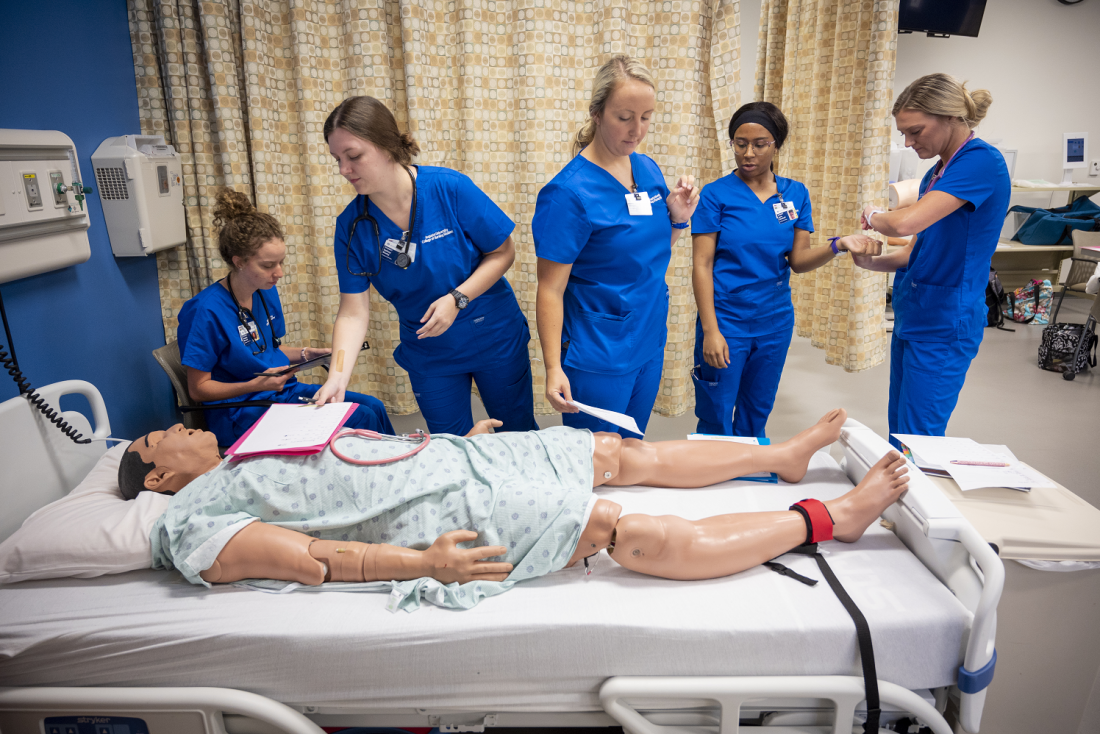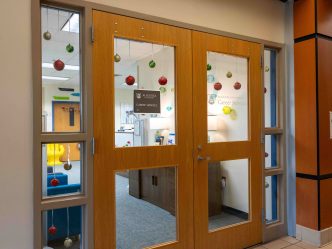Augusta University’s Bachelor of Science in Nursing program begins in a student’s junior year but that doesn’t mean you should wait until then to start prepping. Admission to the nursing program can start right now. Here are 11 things you should do to prepare for entrance into the BSN program:
1. Join the Pre-Nursing Society. The Pre-Nursing Society meets regularly throughout each semester. Joining this student-led organization is a great way to meet your fellow peers who are interested in nursing. Meetings include guest speakers from the College of Nursing and current students covering topics such as preparation for the TEAS exam, application tips and more.
2. Complete the required prerequisites. Maintain communication with your academic advisor regarding your core curriculum and pre-requisite course requirements to make sure you are on track. Some of the required courses for nursing school include anatomy I & II, microbiology, biolody and more. Visit the BSN admissions page for more information.
3. Get health care experience, volunteer experience and/or leadership experience. Although health care experience is not required for nursing school, it helps students understand the health care environment better and makes you a more competitive applicant. You can also gain volunteer experience within the local community and participate in leadership or volunteer roles on campus by joining a student club or organization through the Student Life & Engagement Office.
4. Prepare to apply for nursing school your sophomore year of college. If you are a traditional freshman, start preparing for nursing school at the end of your freshman year of college leading into sophomore year. If you were a dual enrolled student, make sure you are staying connected with your academic advisor, because there is a chance you might need to apply to nursing school a little earlier than others. If you are a high school senior student, you could be eligible for the nursing scholars pre-admit program. If you are a transfer student and have completed the required pre-requisites, you could be eligible to apply upon transferring to Augusta University.
5. Build strong and authentic relationships for academic and professional references. One of the requirements of the BSN application is to obtain a professional and/or academic reference. Contact Career Services for guidance with references.
6. Earn high grades in your science courses. Getting top grades in science courses shows you have a strong foundation and understanding of the material presented in your courses. The higher your grades are, the easier it is to transition into the nursing school curriculum.
7. Meet with the Academic Success Center. Utilize ASC’s free tutoring services for your core classes and attend their academic workshops to build strong time management and study skills.
8. Conduct an informational interview and/or shadow a nurse. Interviewing a couple of nurses or shadowing a nurse can give you a firsthand perspective of the nursing profession.
9. Start your application early. The earlier you start your application, the better. Starting your application several weeks or even months ahead will reduce the chances of errors and mistakes.
10. Take the Test of Essential Academic Skills (TEAS) exam. We recommend studying two to three months in advance for this exam. You could take it during the summer between freshman year and the fall semester of your sophomore year. Augusta University requires a 75 or higher for admission to our nursing program. The exam includes material from reading, mathematics (algebra), science (AP 1 and 2), English and language.
- Useful links to help with the TEAS exam:
- FAQ page
- Prep study plan
- Free test prep
11. Save extra money for nursing school early and apply for scholarships. Keep in mind that there are additional expenses required for nursing students once admitted into the program. Plan to save for the cost of uniforms, lab coats, background check screenings, books, as well as supplies and equipment. You will learn more about these expenses once you are admitted into the program.
Did you read this list and think you might need some additional help? Contact the pre-nursing academic advisors and the nursing program. Preparing now can help set you up for success when it’s time to hit submit on your BSN application.
 Augusta University
Augusta University




